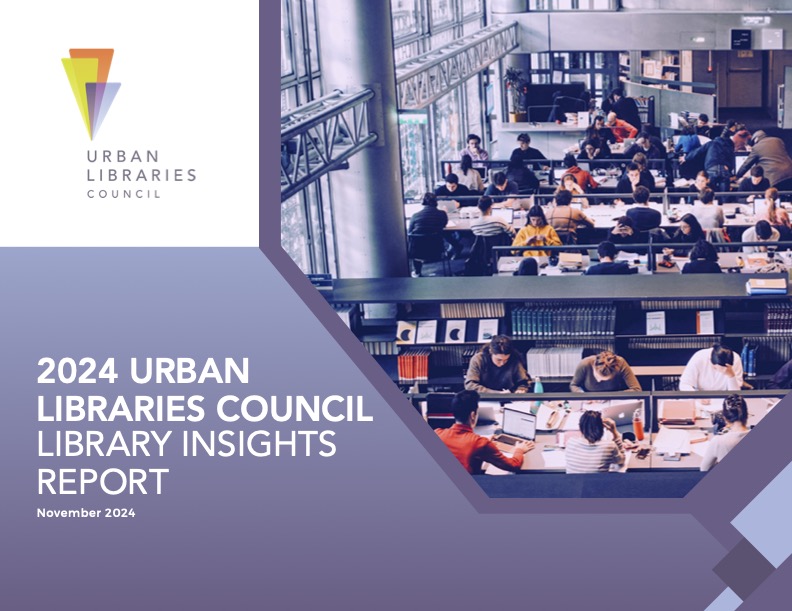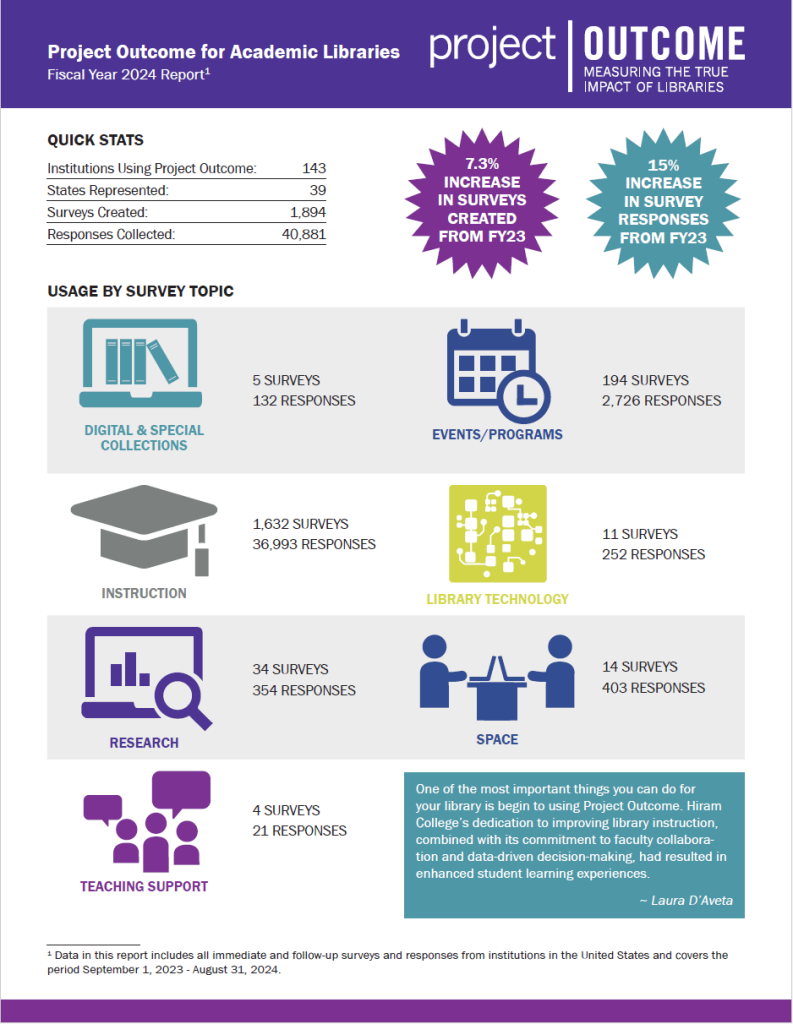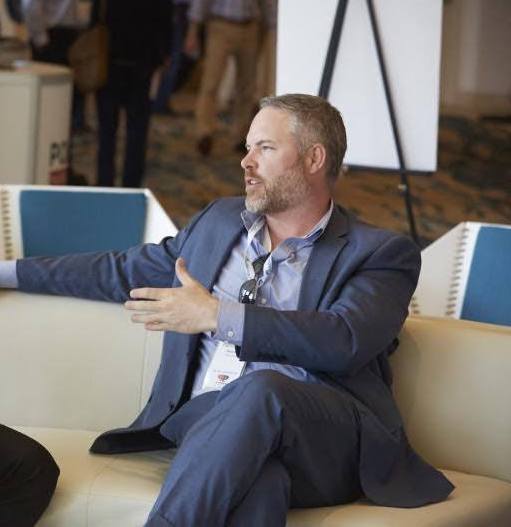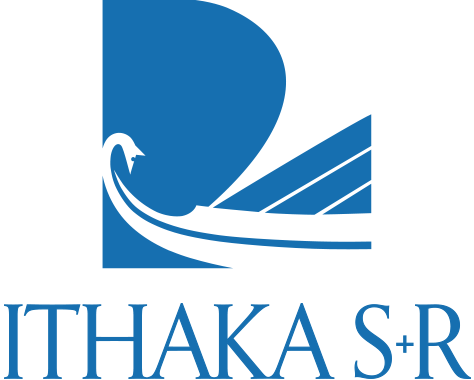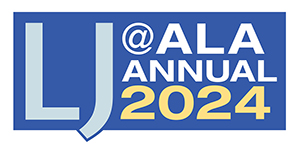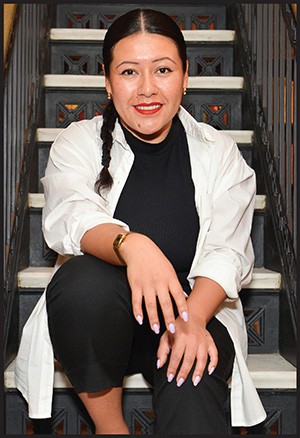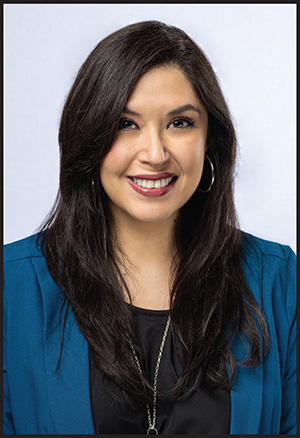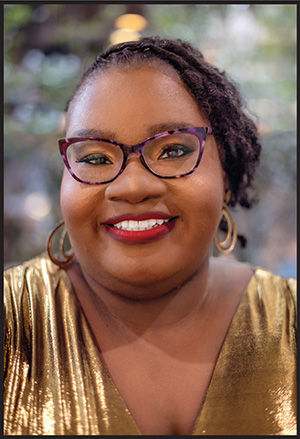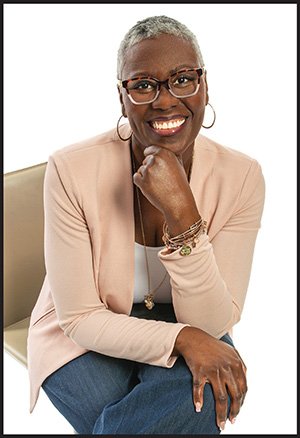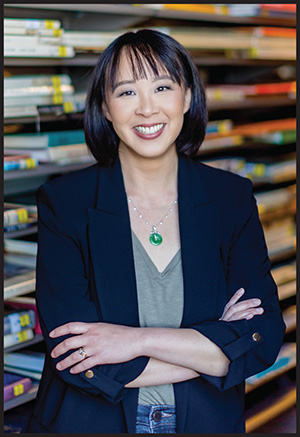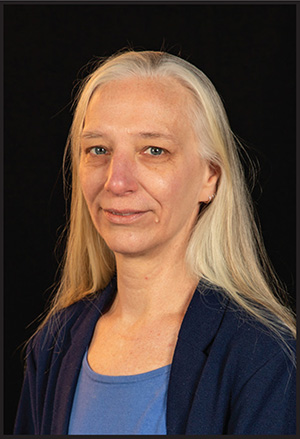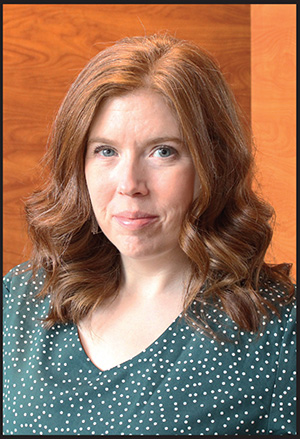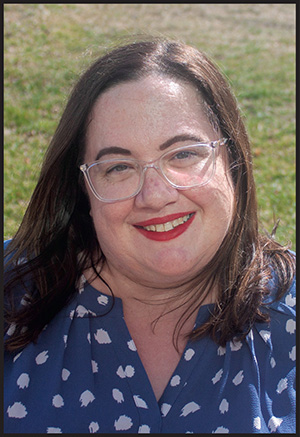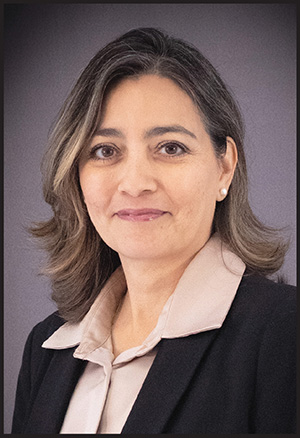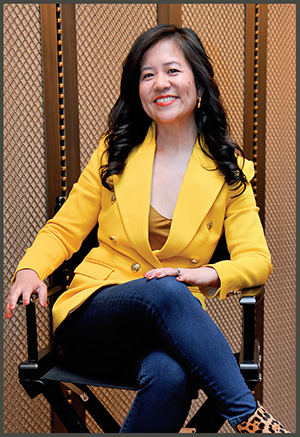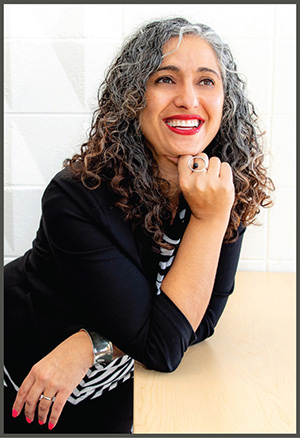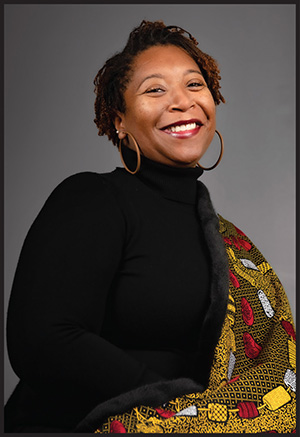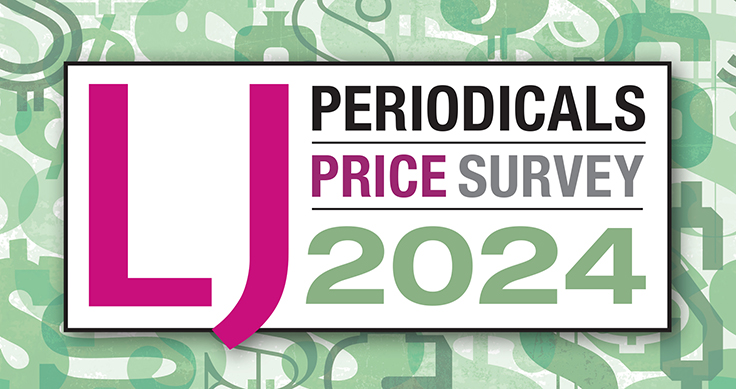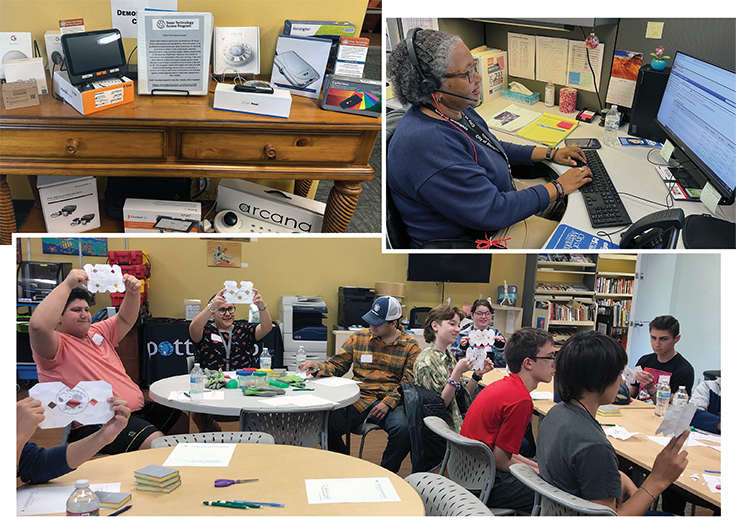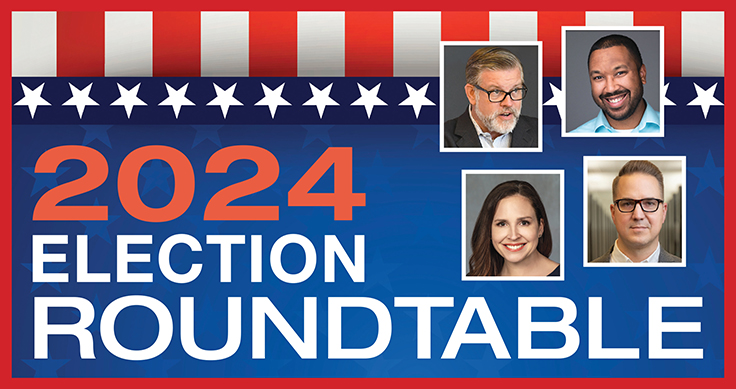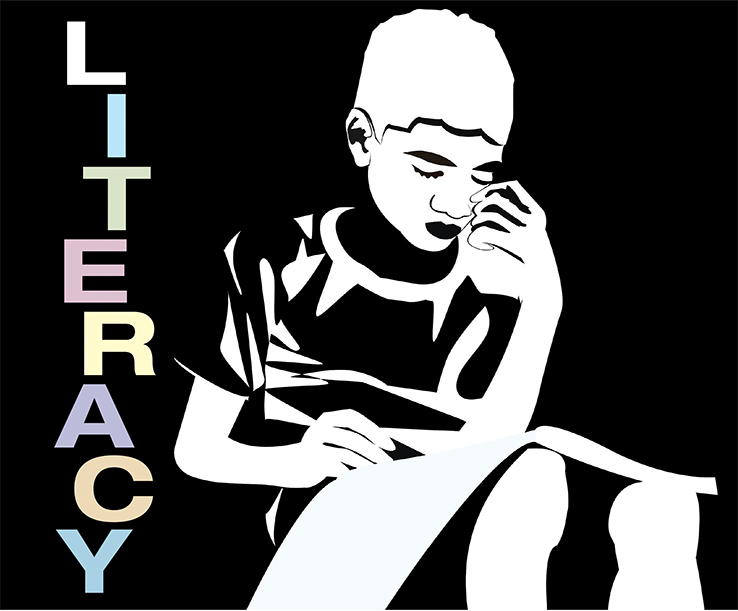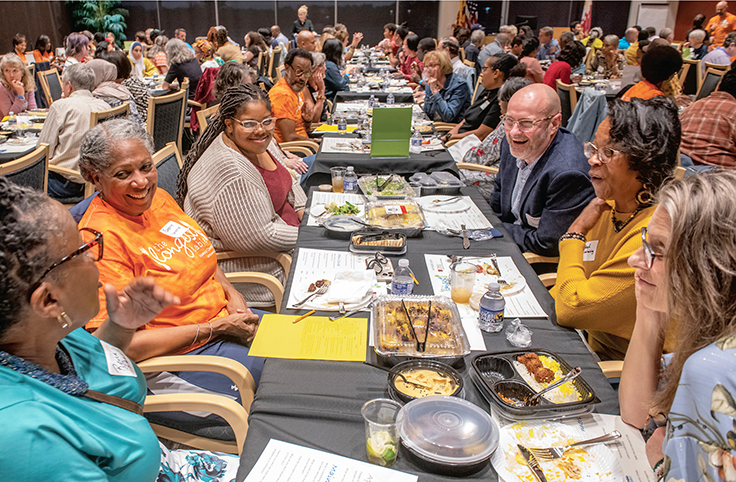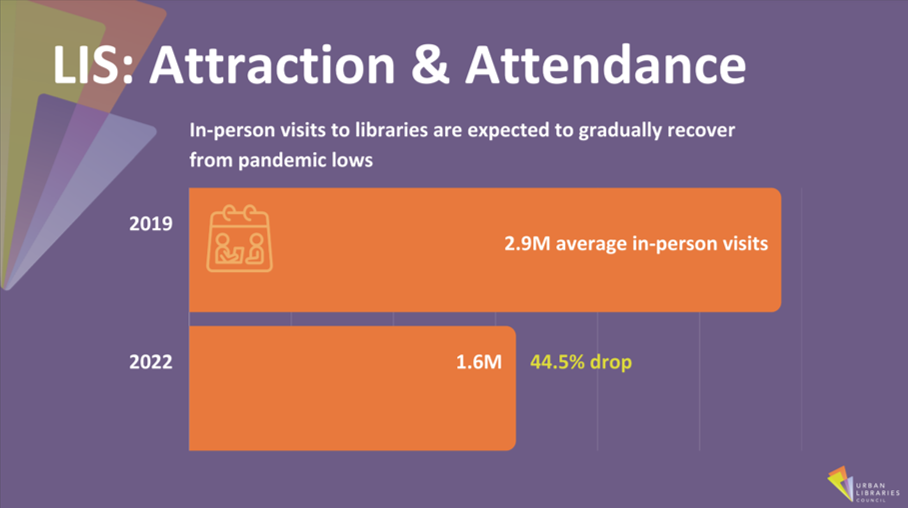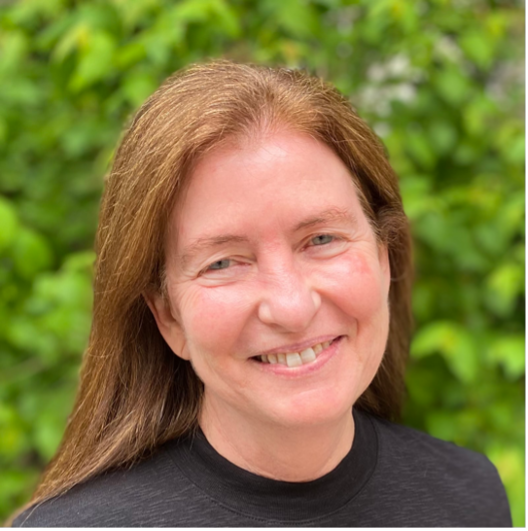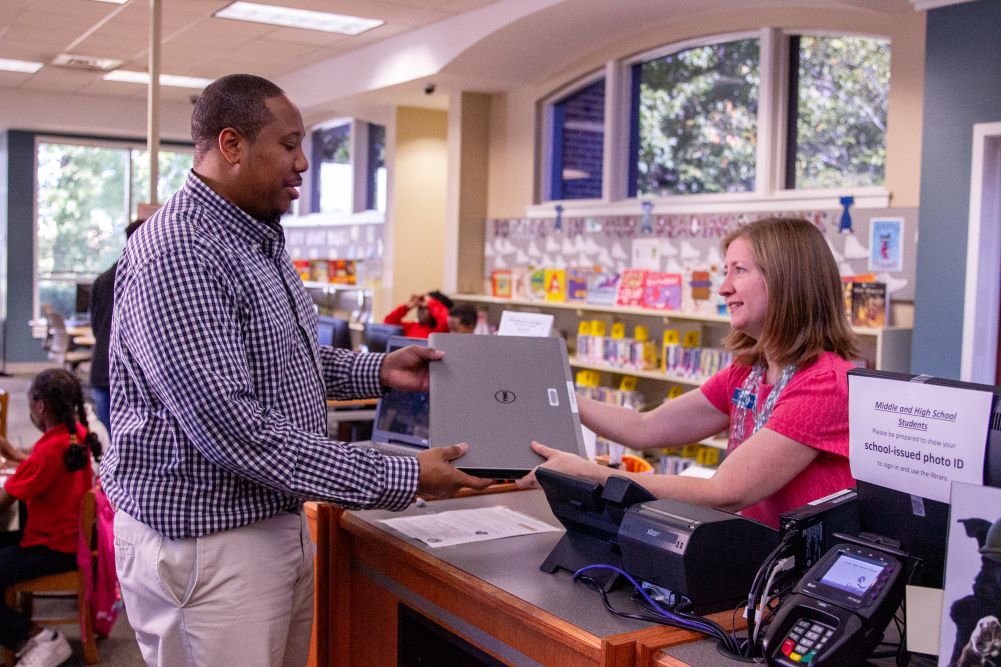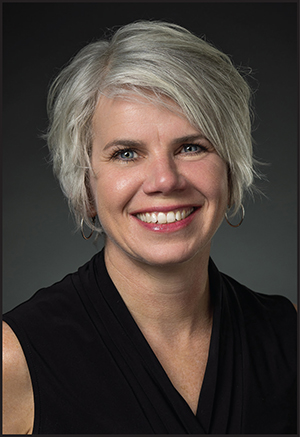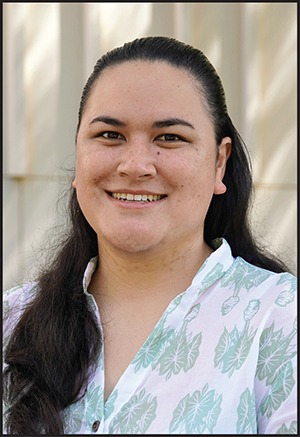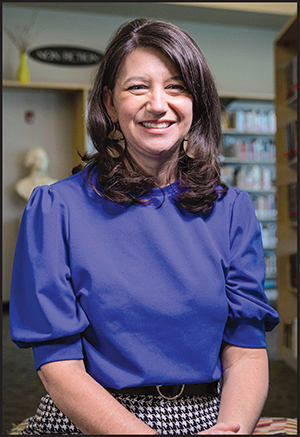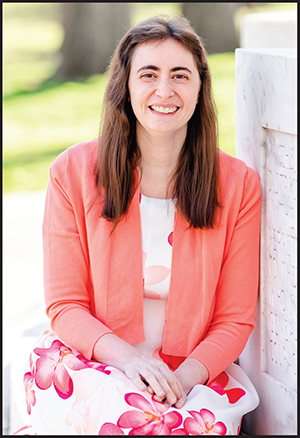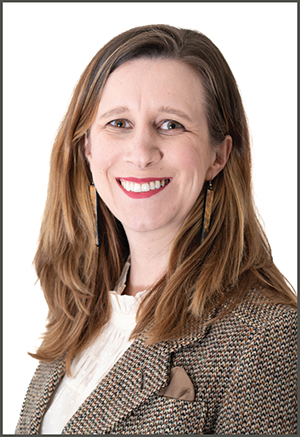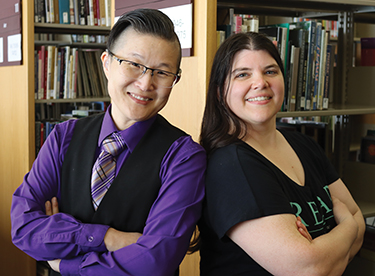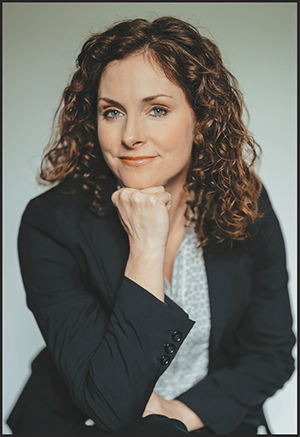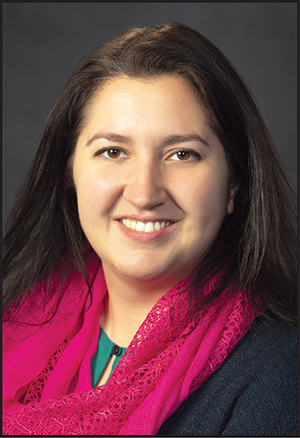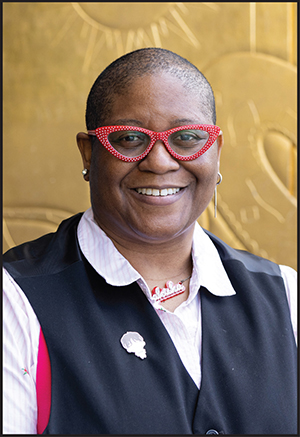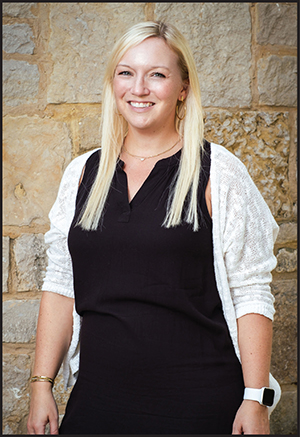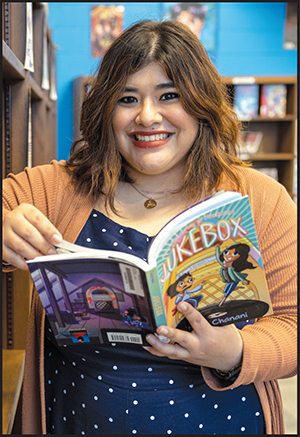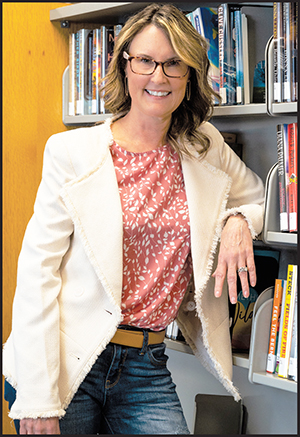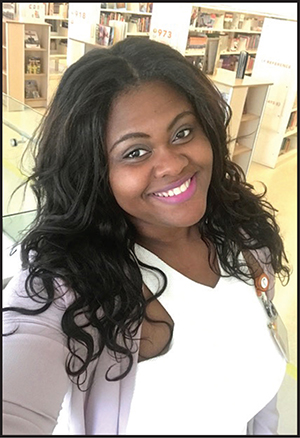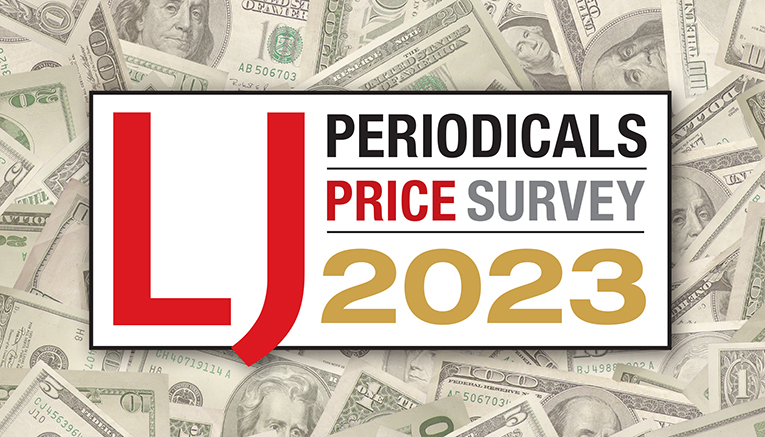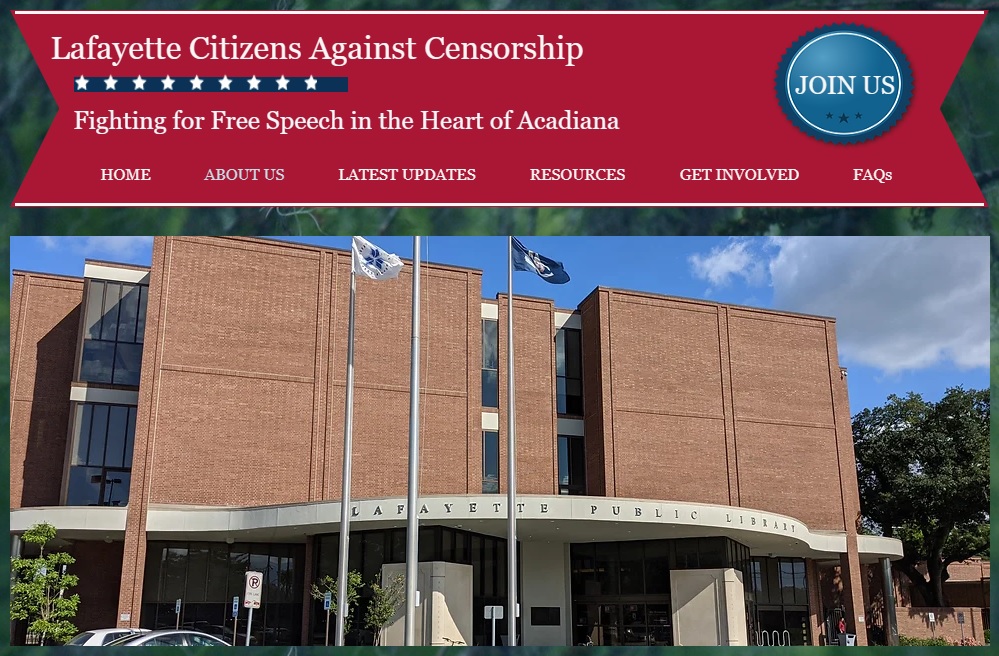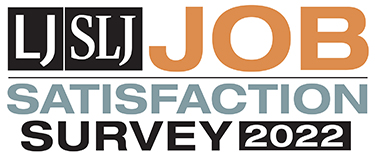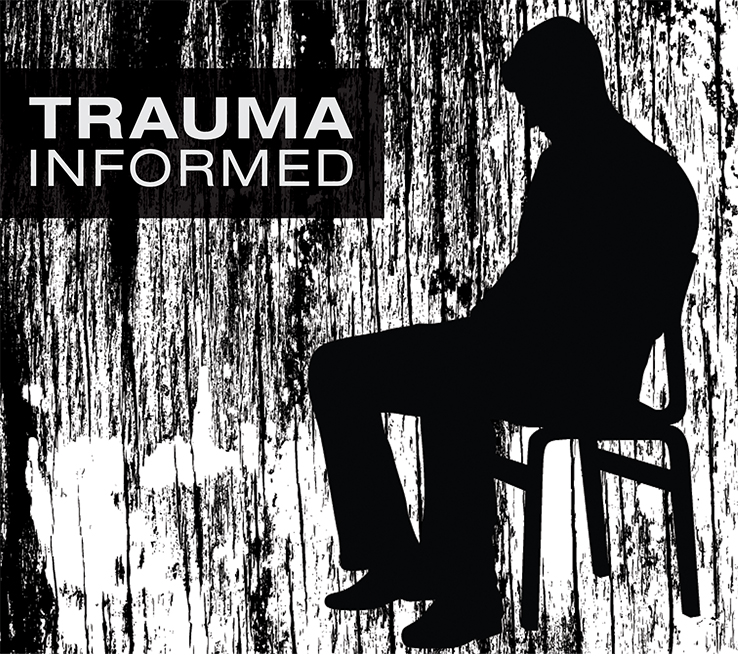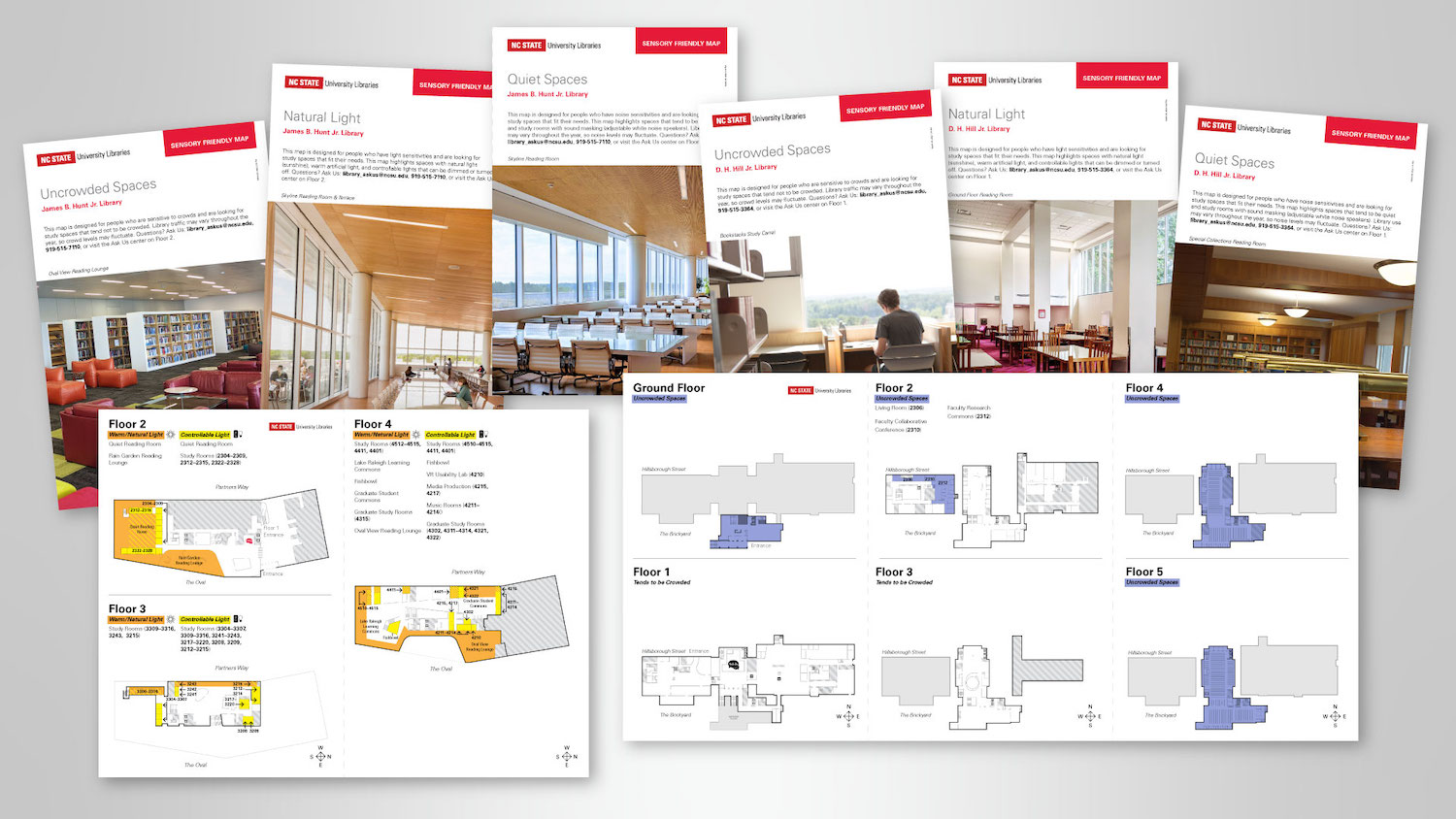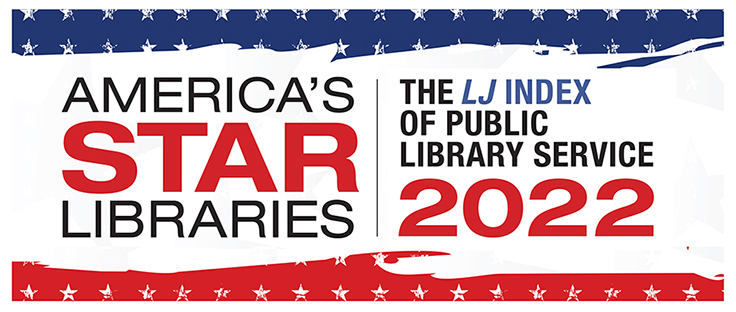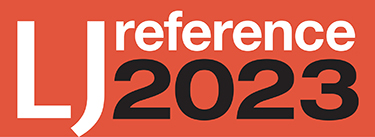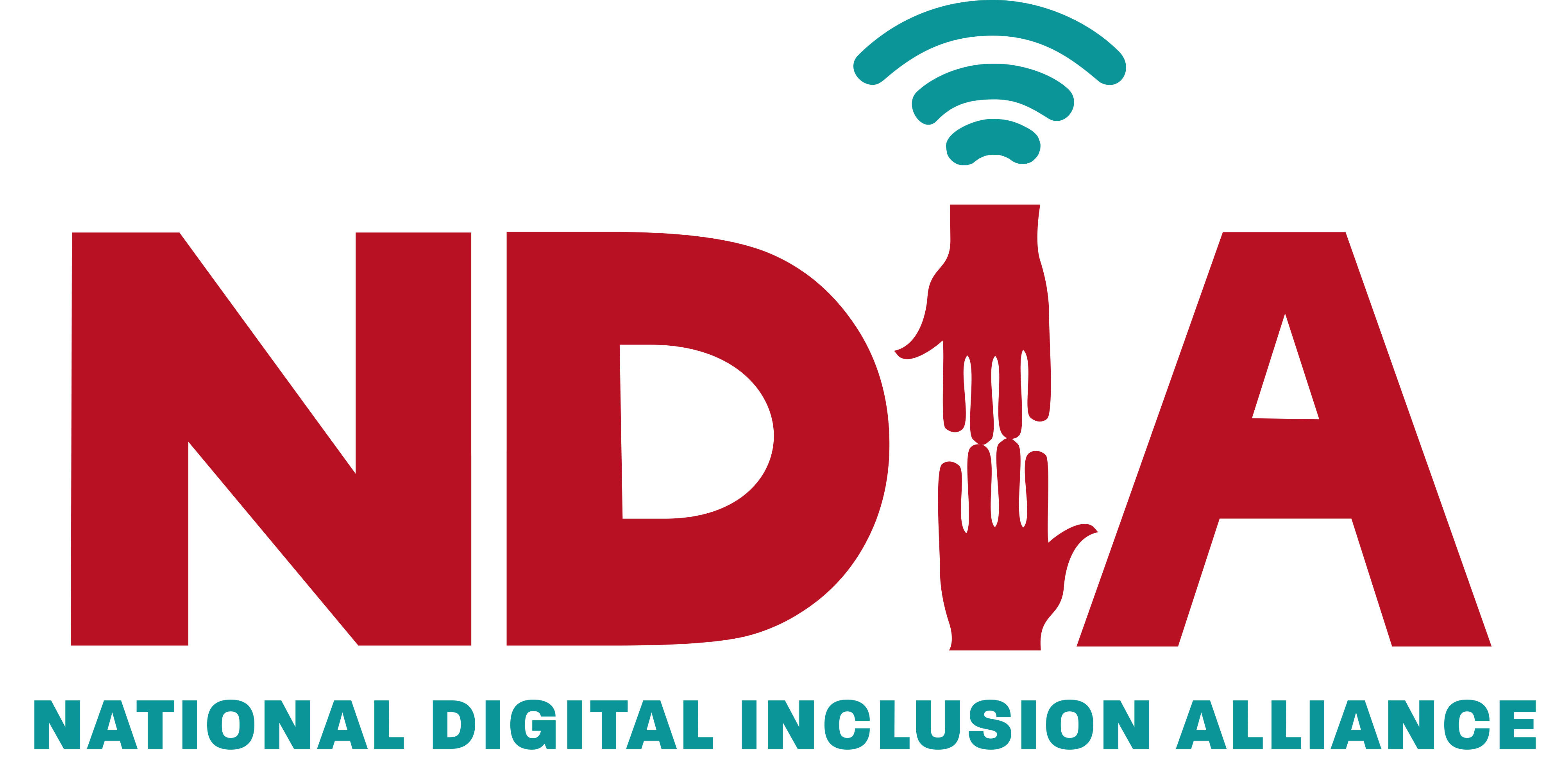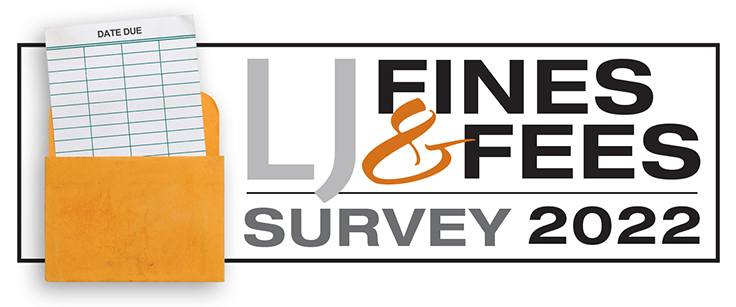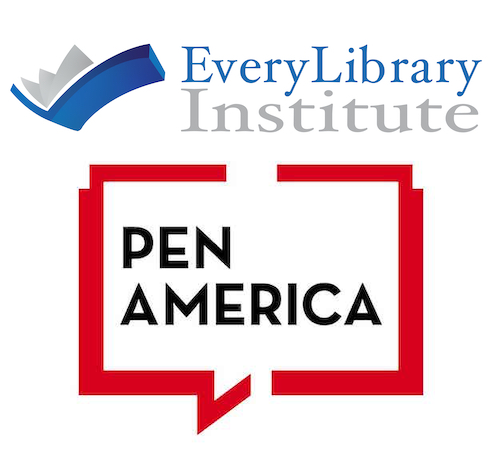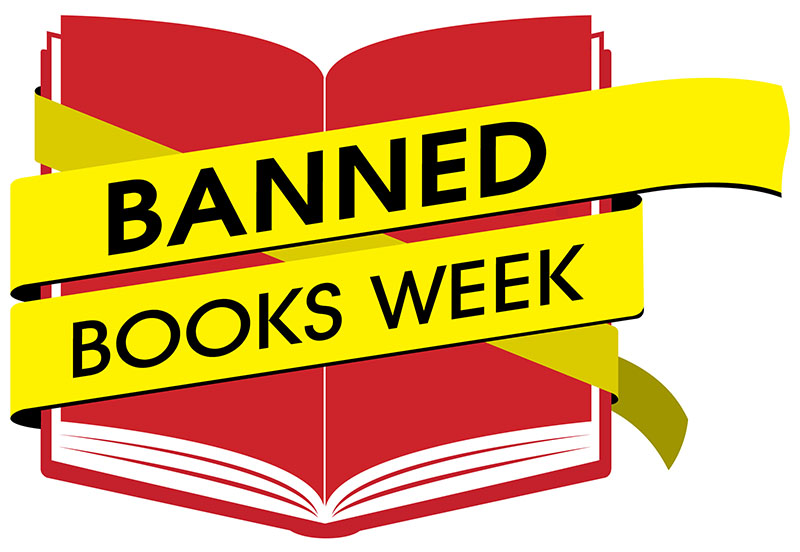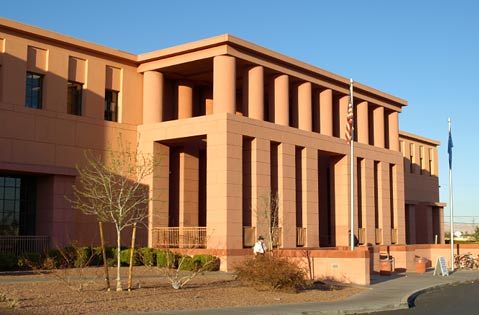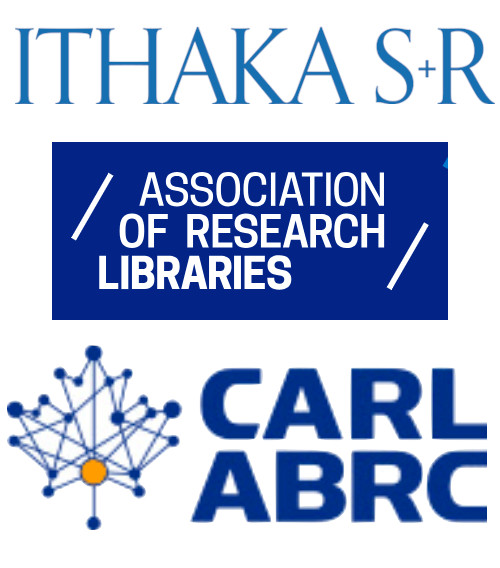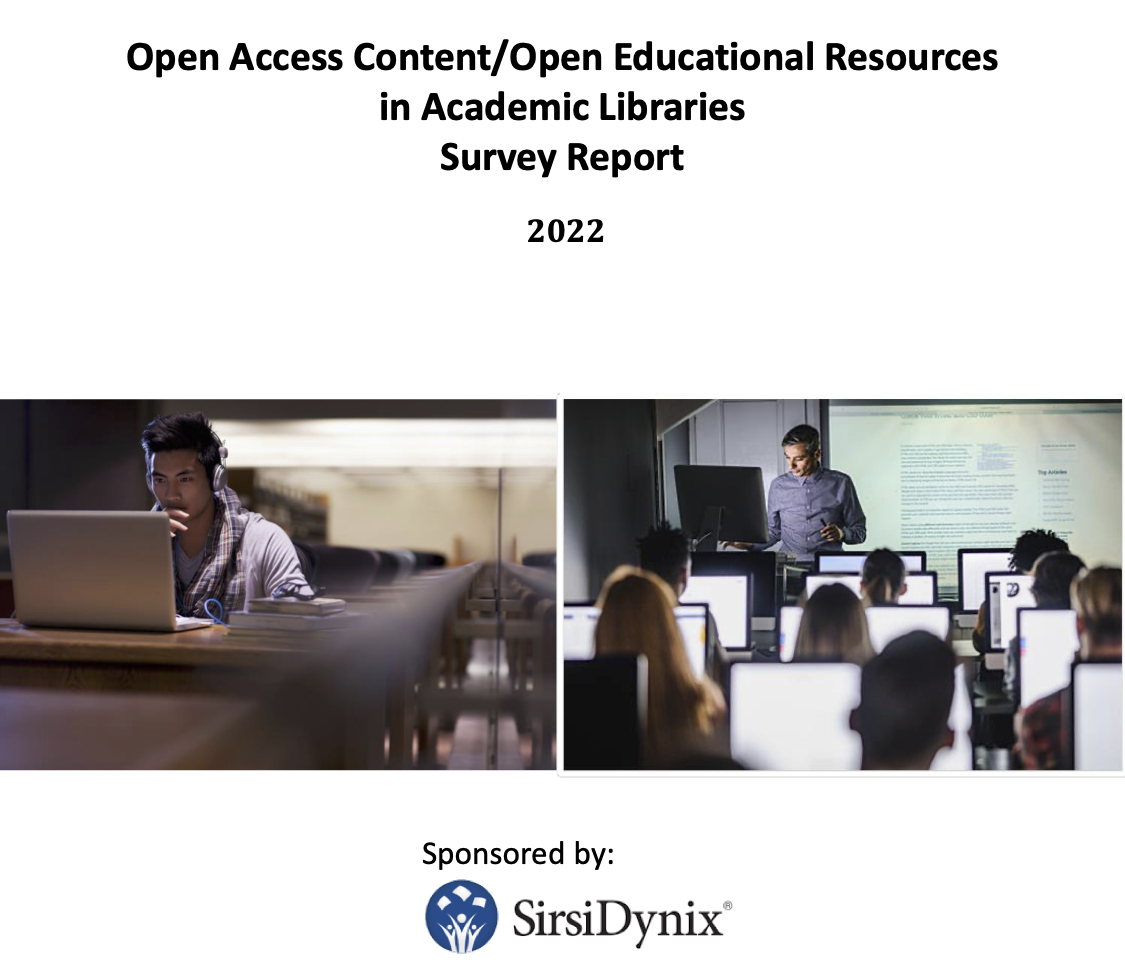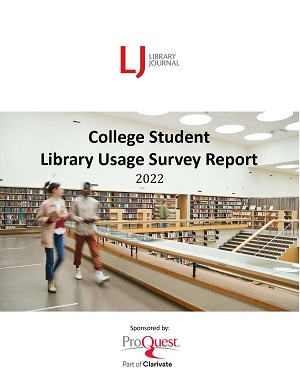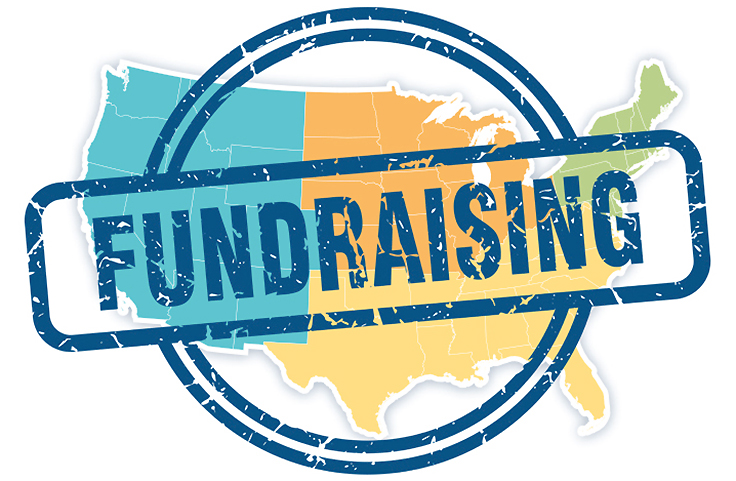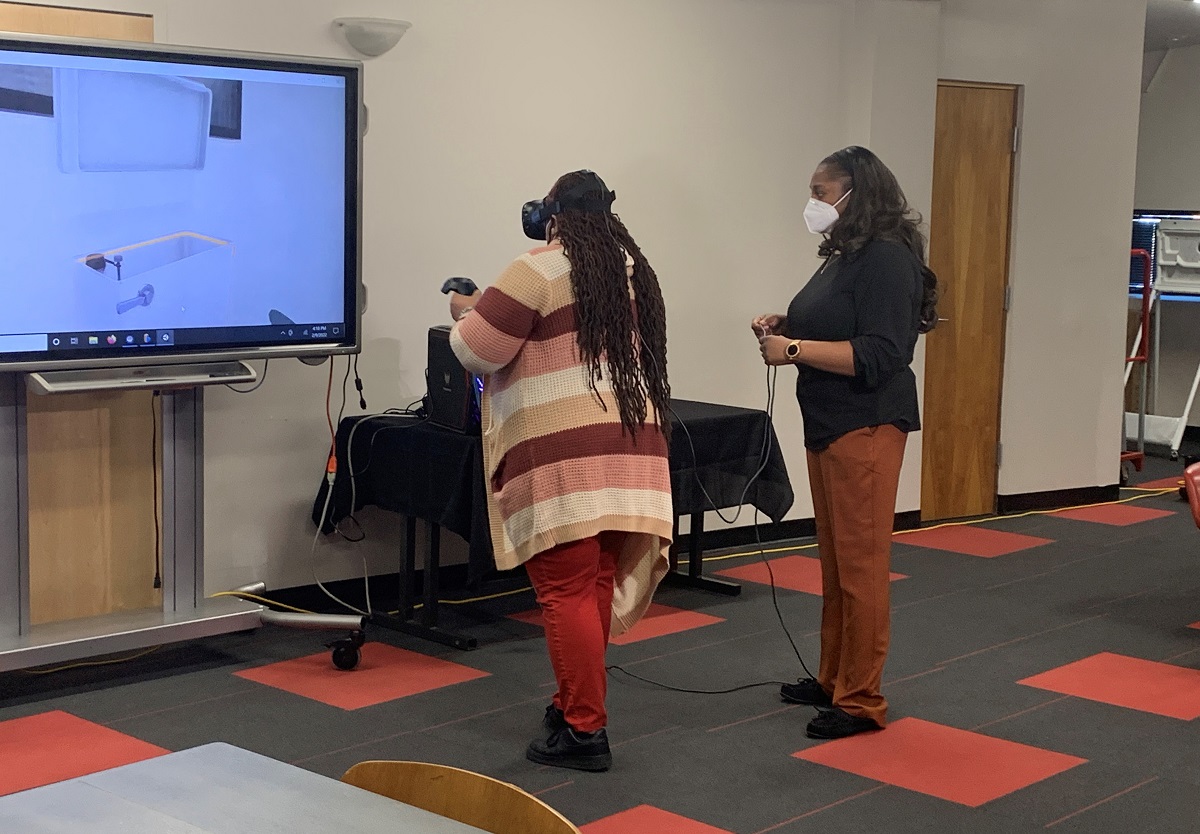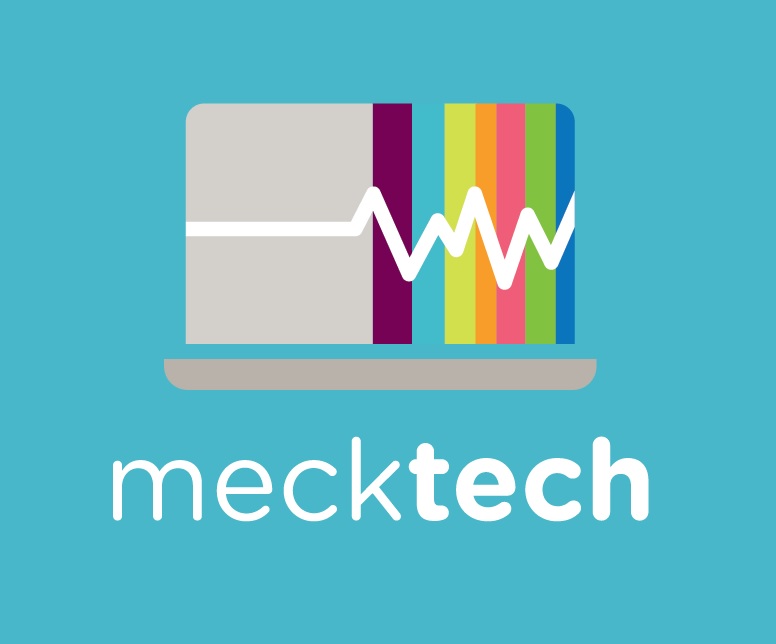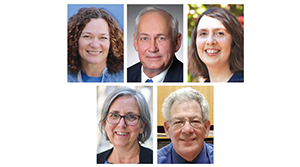Related
On November 19, the Urban Libraries Council (ULC) released a report presenting the results of its 2024 Library Insights Survey, which charts the successes and challenges North American public libraries have seen in service to their communities since the height of the COVID-19 pandemic. Takeaways included a steady increase in attendance since the lows of 2022, with some notable differences in how libraries are being used.
One painful part of living through the pandemic for me was the sense that Americans were failing one another. Recent catastrophic weather events have brought back that same sense of unease. When deadly Hurricanes Helene and Milton made landfall last month, conspiracy theorists suggested they were manufactured for political benefit. Federal relief efforts were stymied by online misinformation, and a man was arrested for threatening FEMA workers. America, we’re not okay.
As artificial intelligence becomes more embedded in work, creative pursuits, and the generation of online misinformation, public libraries have a major new role to play in digital literacy.
On October 24, the Association of College and Research Libraries announced the publication of its 2024 report for the Project Outcome for Academic Libraries (POAL) toolkit. Data in the report offers a snapshot of POAL’s use and impact in FY24, from September 1, 2023, to August 31 of this year. The report is available as a free download from the Project Outcome for Academic Libraries website.
For the past four years, EveryLibrary has been working to fight the book-banning movement. A large part of that fight is developing effective messaging against book bans, as well as conducting extensive message testing, surveys, and focus groups to understand the impact of messaging and determine which messages perform best.
Two and a half years after launch, Books Unbanned has continued to grow as a vital resource for people in schools and communities where book challenges otherwise put content out of reach.
The librarians interviewed for LJ's September 2024 feature on voter engagement and the upcoming election have published a variety of LibGuides, toolkits, and other content. Check out a variety of resources from the American Library Association, EveryLibrary, and more.
On July 16, Ithaka S+R released a new report, “Exploring Basic Needs Support Across Public and Community College Libraries,” as the first phase of its Maximizing Public-Academic Library Partnerships project. The report, authored by Senior Analyst Sindy Lopez, Analyst Sage Love, and Researcher Melissa Blankstein, surveys basic needs services promoted on public and community college library websites to see where that information differs, overlaps, and could potentially be expanded as partnerships.
The U.S. Federal Communications Commission (FCC) on July 18 voted to allow libraries and schools to use funding from the federal E-rate program to purchase Wi-Fi hotspots for lending. A component of FCC Chair Jessica Rosenworcel’s Learn Without Limits proposal—which was announced at the American Library Association’s (ALA) 2023 Annual Conference in Chicago—integration of hotspots into the program was aimed at responding to increasing connectivity needs and modernizing the E-rate program.
Anyone who is attending this year’s American Library Association (ALA) Annual Convention in San Diego hoping to hear more about artificial intelligence (AI) and its impact on libraries has not been disappointed. “Breaking Boundaries: Harnessing the Power of Artificial Intelligence and ChatGPT to Transform Library Services,” one of the earliest panels on Saturday morning, was presented to a full house—five conjoined rooms with every seat taken.
Josselyn Atahualpa oversees adult education courses in literacy, English as a Second Language, and GED preparation. When she noticed a wave of asylum seekers coming to the library in early 2022, Atahaulpa alerted library leadership and pushed QPL to prioritize training on best practices for serving the community.
From her podcast, Allie the Librarian Booktalks, to her leadership with the Texas Library Association, Alexandra Cornejo demonstrates her unwavering commitment to intellectual freedom and promoting diverse voices in literature.
Meredith Crawford, Community Engagement Librarian with the Cedar Rapids Public Library, launched the Be Heard program at a local youth detention center with the goal of reducing recidivism by engaging students with literature and art.
As an American Library Association Emerging Leader, Nicollette Davis is always looking for ways to improve the library field. Through the We Here organization, she helps BIPOC library and information science professionals support each other in a welcoming space.
LaShawn Myles had not worked specifically with the disability community when she joined the Maryland State Library for the Blind and Print Disabled in 2018. Her work as an educator led her to libraries, where she quickly became a champion for visually impaired patrons, advocating for resources and finding ways to make materials more accessible.
Mychal Threets, whose earnest TikTok videos have logged millions of views, started out sharing stories that epitomized what he calls “library joy” to inspire people to visit their library. He ended up capturing hearts across social media.
Monnee Tong’s career has been shaped by her passion for social justice, which carries through to her work as supervising librarian at San Diego Public Library.
Visser's work on E-Rate policy and technology equity has been a game-changer for communities across the country, including in tribal libraries, where she helped improve access to broadband.
When Missouri’s Senate Bill 775 (SB 775) became law in 2022, calling for criminal penalties on educators who provide students with materials containing “explicit sexual material,” Melissa Corey recognized the severe implications for collection development and spearheaded a swift response to preserve compliant books in school libraries.
With a recent surge in book censorship efforts, Sarah DeMaria, cochair and president-elect of the Pennsylvania School Librarians Association’s (PSLA) Advocacy Committee, hears from school librarians statewide who have faced public attacks, reassignments, and chosen resignation due to flawed policies.
Jensen, a librarian by trade, worked in a public library for several years before joining the Book Riot team in 2013, where she developed her passion about the right to read and access to books.
What do graphic novels, Grimace shakes, and Barbenheimer have in common? For 2022 Kentucky School Librarian of the Year Tim Jones, they can be tools for helping students develop media literacy.
Lucy Podmore became chair of the Texas Association of School Librarians at a key time, just as HB 900—the controversial state bill that would require vendors to rate books for explicit content before selling them to school libraries—was on its way to becoming law.
After working in school, academic, and museum libraries, Jennie Pu landed her first public library job as Hoboken Public Library (HPL) director two and a half years ago, and has already made her mark as a champion of intellectual freedom.
Huda Shaltry carries a copy of the U.S. Constitution in her purse. Referring to the First Amendment comes in handy when the Boise librarian meets with members of the Idaho Legislature in her role as Legislative Chair of the Idaho Library Association.
When she was in college, Dr. Shamella Cromartie had a job at a public library where leadership and others were Black, which encouraged her to pursue a career in the field. “It’s important to see people that look like you in these positions so that you know that you can do it, too,” she says.
Many librarians lauded the development of Open Access (OA) publishing models, which offered, at least initially, to help solve the problem of an unsustainable and inequitable scholarly communications ecosystem while simultaneously addressing a growing interest in diversity, equity, and inclusion (DEI). In the past year, the idea that, with appropriate guardrails, Artificial Intelligence (AI) can also play a role in changing scholarly communications has risen to the fore. But can OA, DEI, and AI ever live up to their promise of an affordable, equitable and sustainable publishing ecosystem?
Libraries are incorporating collaboration, creativity, and a steadfast commitment to create accessible and inclusive spaces. Also, LJ looks at EBSCO's academic ebook accessibility findings.
To help break down the relevant library issues in this election year, LJ convened a roundtable of experts including John Chrastka of EveryLibrary; Nick Grove of Meridian Library District, ID; Jason Kucsma of Toledo Lucas County Public Library, OH; and Representative Ashley Hudson from the Arkansas House of Representatives. They covered everything from voter engagement strategies for libraries on the ballot to book ban advocacy in challenging districts to engaging the electorate in an important presidential election year.
As the 2024 election year heats up, positive framing will be increasingly important for libraries. I’m certainly guilty of falling into a “doom loop” of negativity when I think about what the future might hold for libraries—or even democracy itself. But we cannot be our smartest, most strategic selves if we focus only on negating anti-library rhetoric. We need to advance a positive pro-library narrative—one that is grounded in the history of our good work—to unite us as advocates and connect with voters across the spectrum.
When politics come for literacy, how do libraries ensure it’s the kids who win? Public libraries have a critical role to play.
When the Centers for Disease Control and Prevention (CDC) officially declared an end to the COVID-19 public health emergency in May 2023, many libraries reported a transition back to what felt like pre-pandemic days, with children joyfully attending story times and crowds reconvening to hear their favorite authors. Yet, just as we breathed a collective sigh of relief at the formal end of one emergency, United States Surgeon General Dr. Vivek Murthy issued a new advisory warning of a pernicious health risk: loneliness.
Urban Libraries Council contrasts pre-pandemic data with 2022 library stats to reveal growth in digital resource use and slow returns to in-person visits.
If you're seeing this, chances are you’re someone who identifies as a reader. And, as a reader, you may be shocked to discover that there are many American adults who just aren’t.
We already recognize the profound impact of pandemic learning loss: student performance in math and reading has hit its lowest levels in decades. What’s more, students demonstrated slower than average growth in the last school year, meaning learning gaps aren’t closing—in some cases, they’re growing. That’s where libraries can step in.
All eyes are on Texas as HB 900, the state’s controversial new book rating law, is slated to take effect September 1, 2023. Signed by Governor Greg Abbott on June 12, the legislation aims to prevent the sale of books deemed “sexually explicit” or “sexually relevant” to school districts by requiring book publishers and vendors to rate individual titles based on content.
The most recent Ithaka S+R U.S. Library Survey shows that 67 percent of academic library directors indicate strategies that specifically address ensuring the accessibility of the library’s physical and digital collections are a high priority in their DEIA (diversity, equity, inclusion, and accessibility) efforts. How can we continue to foster support for—and innovation in—equitable access to library services and resources?
Most libraries don’t own their own ebooks. This shouldn’t come as a surprise to LJ readers, yet it’s a statement that continues to confound elected officials and administrators who get an astounding amount of say in how much money public and academic libraries are allotted. This is one of the reasons I, along with my coauthors Sarah Lamdan, Michael Weinberg, and Jason Schultz at the Engelberg Center on Innovation Law & Policy at New York University Law, published our recent report, The Anti-Ownership Ebook Economy: How Publishers and Platforms Have Reshaped the Way We Read in the Digital Age.
The Georgia Public Library Service (GPLS) has distributed more than 7,000 Chromebooks and 2,800 Launchpad tablets to libraries throughout the state with the help of $2.3 million provided by the Governor’s Emergency Education Relief (GEER) fund via the federal Coronavirus Aid, Relief, and Economic Security Act.
As chair of the Meridian Library District (MLD) Board of Trustees, Megan Larsen passionately defends the right to read. Like many libraries around the country, MLD faces attacks from a vocal minority seeking to restrict access to titles featuring diverse content, and recently, a group filed a petition attempting to dissolve the district. “Sometimes, the fight comes to you, like it or not,” Larsen says.
In Shavonn-Haevyn Matsuda's MLISc program at the University of Hawai‘i at Mānoa, she focused on examining and challenging inadequacies of access in information systems and library services. Later, after becoming head librarian at the University of Hawai‘i Maui College Library, Matsuda’s doctoral research investigated creating a system of information for Hawaiian archives and librarianship.
As senior librarian at San José Public Library, Lizzie Nolan manages programs, collections, and outreach for both the Children’s Room and teen space known as TeenHQ and has executed and evaluated yearlong literacy programs for the entire 26-branch system. In 2021, Nolan was tasked with leading San José’s Youth Commission, the official youth advisory group to the mayor and city council.
In 2015, as an offshoot of a student leadership congress where he was a delegate, Kevin Conrad Tansiongco founded the Magbasa Tayo (Let’s Read) Movement, an advocacy campaign promoting the importance of community reading centers and public libraries in the Philippines.
When Missouri’s Department of Elementary and Secondary Education stopped gathering data on school library collections, Amy Taylor found herself talking to others equally concerned with the loss of the information school libraries needed to advocate for funding. While public libraries have a legislative committee to lobby at the state level, no school library advocacy committee existed. Taylor stepped up to chair a task force studying how school librarians could raise awareness of what they do.
As the synagogue librarian for Temple Rodef Shalom Library and a children’s book consultant, Kusel says she wants to see more literary mirrors for children who are Jewish and offer windows to youth of different faiths to better understand Jewish beliefs and culture.
When Eryn Duffee moved to Washington from Tennessee in early 2021, she immediately jumped into leadership at the Washington Library Association, where she is working to transform the statewide school system.
Alicia Deal and KayCee Choi nominated each other for the same reason—their advocacy for d/Deaf (Hard of Hearing/Deaf) culture. The two have spearheaded Dallas Public Library programming for National Deaf History Month in April; Deal and Choi created programs about major league baseball player William Hoy and author and activist Helen Keller, among others, which drew about 100 patrons total.
Lindsey Kimery stepped up her advocacy efforts as the Tennessee legislature crafted bills such as the Age Appropriate Materials Act of 2022 and an Obscenity and Pornography bill, each an attack on intellectual freedom. “Lindsey rallied librarians across the district and state to speak up and speak out on behalf of those who would be affected,” says nominator Alyssa Littrell, Metro Nashville Public Schools district librarian.
The Russo-Ukrainian War is more than a war between armies—it is a war between societies. Russia’s intention is not solely to defeat the Ukrainian military but to turn Ukraine into a gray zone by destroying it as a nation. Among the key casualties of the war are cultural heritage institutions, specifically those where ideas are preserved and exchanged: libraries.
David Greisen is founder, CEO, and the driving force behind Open Law Library, a nonprofit open-access publisher helping governments collaborate, draft, and publish consistent laws with legislative history built to withstand nation state–level cyberattacks and comply with the Uniform Electronic Legal Material Act, all without going through for-profit publishers.
On any given day, Schuylerville Public Library patrons might find director Caitlin Johnson stacking apples or cleaning the public produce fridge. Collaboration with local farmers, food pantries, and the Southern Adirondack Library System, NY, as part of the Farm-2-Library program has allowed SPL to offer tens of thousands of pounds of fresh produce to patrons free of charge.
Rakisha Kearns-White established the Cycle Alliance, a teen advocacy group that fights period poverty and the stigma of menstruation. Since spring 2020, more than 170 teens have attended workshops, helped with distribution days, or volunteered for Cycle Alliance programs. The Cycle Alliance has partnered with international and local organizations to offer period-product distribution days and safe-sex workshops, giving out 200 period kits since 2021.
In 2019, Lambert was selected to be part of the International Society for Technology in Education (ISTE) Equity and Action Forum. ISTE wanted participants to work on a yearlong project involving equity in education.
Although students are the focus of her work, Quilantan-Garza has also helped more than 25 teachers earn certification as Microsoft Innovative Educator Experts—and her “Tech Yourself” online, self-paced microcredentialing courses help teachers and staff document how they are staying current with the latest educational tools and technology.
When the Democratic nominee for state representative in Ohio’s 99th district was forced to withdraw from an upcoming election after her home was redistricted by 20 feet, Kathy Zappitello stepped into the race, largely to oppose pending censorship legislation introduced by her opponent that would “prohibit teaching, advocating, or promoting divisive concepts.”
Ashley Allen guides YA patrons along multimedia-related job paths by organizing industry networking opportunities and educational presentations, facilitating their access to scholarships, and overseeing the “Voices of Queens” podcast program. More than 165 students have created 100 episodes of this strictly for-teens, by-teens published program. Combined, they’ve completed at least 900 after-school hours of career training.
Can libraries afford open access? LJ’s latest Periodicals Price Survey examines the state of the market.
Two community members are suing Louisiana’s Lafayette Consolidated Government, the municipal body that oversees the Lafayette Public Library (LPL), for denying the right to free speech in public board meetings. Lynette Mejía and Melanie Brevis, community members and patrons of LPL, are co-plaintiffs in the suit, which also names Board of Control President Robert Judge. According to local newspaper The Acadiana Advocate, the lawsuit alleges the violation of Mejía’s and Brevis’s First Amendment rights to free speech as well as their 14th Amendment rights, along with violations of the Louisiana Open Meetings Law.
LJ and SLJ’s 2022 Job Satisfaction Survey shows that most librarians are glad they chose their career, but significantly fewer than in 2012.
As awareness increases about the need to address personal challenges both inside and out of the library, staff and practitioners—from leaders to frontline workers—are sharing their experiences, observations, and views around trauma-informed librarianship.
The need for increased accessibility is an ever-growing priority, as is understanding the scope and nuance of the concept. At North Carolina State University (NC State) Libraries, Raleigh, staff from a range of functional areas are working together to address and increase accessibility in their physical spaces, collections, and offerings. In May 2021 they formed an Accessibility Committee to coordinate and implement practices and changes throughout the system.
I’m not the first queer person to say that I was really into Matilda (1996) when I was a child. I loved the scenes of Matilda in awe of her public library, enchanted by the escape it offered from her home life. The library was her safe place. My research is mine.
Professors and librarians at academic institutions sometimes describe certain students—or groups of students—as “not ready for college,” or assume that they “don’t know how to study” or are “at risk of dropping out.” These negative labels are most often given to students who are first-generation, low-income, and/or BIPOC (Black, Indigenous, and people of color). These views are called “Deficit Thinking”—blaming students for any failure to excel in a new, unfamiliar academic environment, rather than examining how an institution may be failing those students.
This is the 15th year in which Library Journal has scored U.S. public libraries on the LJ Index of Public Library Service and awarded Star Library ratings. The 2022 scores and ratings are based on FY20 data from the Institute of Museum and Library Services Public Library Survey.
The 258 Star Libraries for 2022 are located in 36 states and—for the first time since 2018—the District of Columbia.
Library advocates have become increasingly sophisticated about collecting the emotional outcome stories that bring to life how libraries change lives. We may, sadly, need to start applying that savvy to collecting the outcomes of what happens when libraries are lost or gutted, whether due to pervasive underfunding, as in the UK, or ideologically driven campaigns against books, displays, and programs that represent LGBTQIA+ and BIPOC experiences, as is being attempted in the U.S.
In the United States, 2.3 million people are imprisoned inside of jails, prisons, or detention facilities with little to no access to information services of any kind. Some public libraries meet this need through Reference by Mail.
What do accessible spaces/programs/services look like in libraries? Ongoing engagement with disabled patrons and staff is key.
At LJ’s recent Design Institute in Missoula, MT, the term places of refuge came up several times. It was new to me, but the meaning was clear from the context: individual-scale spots within the larger, communal library. But the refuge the library can offer is inherently temporary. For libraries to help make their whole communities places of refuge, libraries need to facilitate long-term planning for resilience to disasters that are more frequent and severe—plus, support government policy changes to slow and perhaps reverse that progression.
Since April, Brooklyn Public Library’s (BPL) Books Unbanned program has offered free library cards to teens and young adults across the United States who live in communities impacted by book bans, enabling them to access the library’s collection of more than 500,000 ebooks, e-audiobooks, digital magazines, and more. BPL Chief Librarian Nick Higgins recently talked to LJ about how the idea for the program originated and how it has grown during the past six months.
The National Digital Inclusion Alliance (NDIA) in September announced that Pottsboro Library in Texas was one of 18 organizations that will be part of the National Digital Navigator Corps. Supported by a $10 million investment from Google.org, the new program will enable institutions serving rural and Tribal communities to hire, train, and support a digital navigator to help residents of those communities gain access to the internet, devices, and digital skills training.
The EveryLibrary Institute, the companion organization of library advocacy group EveryLibrary, commissioned Embold Research, a nonpartisan research firm, to poll 1,223 U.S. voters on book banning. The survey found that nearly all (92 percent) have heard at least something about such censorship, and at least 75 percent will consider the issue of book banning when voting this November.
The American Library Association's Office of Intellectual Freedom tracked 729 attempts to ban or restrict library resources in K–12, higher ed, and public libraries in all of 2021, targeting 1,597 unique titles—itself the highest number of attempted book bans since ALA began keeping track of challenged books more than 20 years ago.
The Las Vegas–Clark County Library District, in partnership with the Nevada Homeless Alliance and the Nevada Partnership for Homeless Youth, this spring launched a successful cell phone lending program to provide smartphones to people experiencing homelessness.
A recent study shows truth in the saying, “It’s not what you know, it’s who you know.” Published in Nature, it examined Facebook relationships of 72 million people—84 percent of U.S. adults 25 to 44—and found that the biggest determining factor of a neighborhood’s less wealthy children obtaining positive economic mobility as adults was how much they connected with people outside their economic strata.
The Association of Research Libraries (ARL) and the Canadian Association of Research Libraries (CARL) recently commissioned Ithaka S+R to examine how academic research libraries in Canada and the United States help their institutions achieve strategic priorities, what can be done to advance this work, and how university leaders gauge expectations of their libraries.
The findings of LJ’s Public Library Materials Survey show that librarians are focused on the formats readers want and the process of crafting responsive and representative collections.
The use and visibility of open access (OA) content collections and open educational resources (OER) appear to be changing at colleges and universities, according to the results of LJ’s 2022 Open Access/Open Educational Resources Survey, sponsored by SirsiDynix. Many institutions and their libraries are placing more emphasis on helping students and faculty find those resources, but survey participants feel they are not fully satisfied with how well their search interfaces direct students to these collections, or with their frequency of use.
As frontline public library workers experience increasing levels of trauma on the job, a recent report and forum consider how to help disrupt the cycle.
Responses to the pandemic from rural librarians represent an opportunity to better understand how libraries that want to make social well-being impacts can do so. The recent Institute of Museum and Library Services’ “Empowering Readers, Empowering Citizens” convening highlighted a host of pressing challenges facing libraries in this late-pandemic period—and the variation in the responses from urban and rural libraries couldn’t have been starker.
The Seattle Public Library; District of Columbia Public Library; and Fayette Public Library, Museum & Archives, La Grange, TX, in partnership with the University of Washington, have launched VRtality.org, a website that provides libraries and other institutions with a roadmap for co-designing virtual reality (VR) apps to support the mental health of teens. The roadmap and website were informed by three separate VR pilot programs developed by the three libraries. Librarians worked directly with teen patrons to create the VR programs, treating them as equal partners in the projects.
Library Journal’s recent survey on College Student Library Usage, sponsored by ProQuest, looks at how students in American colleges and universities use their institutions’ libraries, and whether those libraries are meeting students' needs. Most are pleased with the quality of resources provided, and more than three quarters feel the library contributes to their academic success. However, the number of visits, whether in-person or virtual, are hit-and-miss—as many students use the library more than 10 times a semester as never use it at all.
The results from LJ’s Fall 2021 Public Library Fundraising Survey demonstrate how the COVID-19 pandemic changed the ways libraries conducted their fundraising. Like so much else in the library field, the pandemic forced library staff, administrators, and Friends groups to reconsider the best ways both to raise funds and utilize them.
Georgia’s Clayton County Library System has launched a new job training program that enables patrons to use virtual reality (VR) headsets to simulate hands-on experiences in various trades including plumbing, commercial and residential HVAC, and even solar panel installation.
Charlotte Mecklenburg Library (CML), NC, in March 2022 will begin distributing 20,000 free, refurbished laptops to Mecklenburg County adults who do not have their own home computers through its MeckTech Computer Kit Program. Separately, this month CML began rolling out MeckTech Connect, a pilot program that will provide free broadband internet service to about 800 households in Charlotte’s West Boulevard Corridor.
This is the 14th year in which LJ has scored U.S. public libraries on the LJ Index of Public Library Service and awarded Star Library ratings. The 2021 scores and ratings are based on FY19 data from the Institute of Museum and Library Services Public Library Survey.
We interviewed five directors of new or returning 2021 Star Libraries to learn how their libraries were positioned to cope with the pandemic, how they changed their operations to cope with the pandemic, and how their libraries rose to the challenges of the pandemic.
UPDATE: On December 9, the Association of American Publishers (AAP), filed suit against the Maryland Attorney General seeking to overturn House Bill 518/(SB432). The law requires publishers to offer "electronic literary product" licenses to Maryland libraries “on reasonable terms,” and prohibits publishers from instituting embargo periods during which ebook and electronic audiobook licenses are available for sale to the public but not to libraries.
The latest report from Ithaka S+R, “Big Data Infrastructure at the Crossroads,” released December 1, offers critical findings and recommendations on the ways higher ed researchers, scholars, and technicians can partner with university and college librarians to support data research. The report was built from quantitative results and interview transcripts produced by a cohort of librarians at each participating institution.
The Institute of Museum and Library Services (IMLS), in partnership with Reinvestment Fund, recently released “Understanding the Social Wellbeing Impacts of the Nation’s Libraries and Museums,” a report on the ways that libraries and museums promote social inclusion and well-being. The study, conducted between 2018 and 2020, looked at measures that included community health, school effectiveness, institutional connection, and cultural opportunity.
2020 LIS graduates faced a dip in salaries, an increase in remote work, and a drop in satisfaction, but not a major rise in unemployment.
Library Journal ’s survey on The State of Academic Libraries, fielded by LJ and ProQuest in May through July, sought to examine how college and university libraries worldwide have fared during this time of rapid adjustment—particularly during the 2020–21 academic year, when the pandemic dramatically accelerated changes across the board.
The 2020 Public Library Technology Survey presents a snapshot of the vital technology services that libraries provide their communities, areas of disparity between urban and rural libraries, and the challenges that institutions of all sizes face in expanding or enhancing technology services.
On September 9, Ithaka S+R released the findings from its most recent survey of community college library directors on issues of leadership, strategy, and collaboration during the pandemic, “Library Strategy and Collaboration Across the College Ecosystem.” The survey, fielded in February and March, was the third phase of the Community College Academic and Student Service Ecosystem (CCASSE) project, funded by the Institute of Museum and Library Services (IMLS).
When we talk about web usability, we are talking directly about our patron’s experiences in a library’s digital space, so rethinking how we do this work through the lens of antiracism is important.
ALREADY A SUBSCRIBER? LOG IN
We are currently offering this content for free. Sign up now to activate your personal profile, where you can save articles for future viewing

